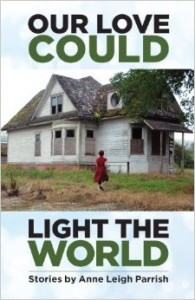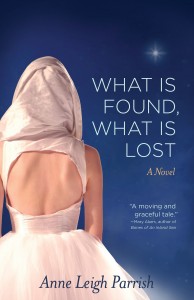What it Takes to be a Writer
 Virginia Woolf is famous for having said that to be a woman and a writer, one needed a room of one’s own and five hundred pounds a year. In essence, she was advocating for space and time. Of course she was correct. Of course these are two essential components of a successful writing life. It’s better to work uninterrupted and undistracted, isn’t it?
Virginia Woolf is famous for having said that to be a woman and a writer, one needed a room of one’s own and five hundred pounds a year. In essence, she was advocating for space and time. Of course she was correct. Of course these are two essential components of a successful writing life. It’s better to work uninterrupted and undistracted, isn’t it?
But our dear Virginia didn’t have any children, and so didn’t really know the fine art of juggling time and competing demands. Her words still ring true, despite that. We all need that quiet, secure place to say what we need to say, and just how we want it said.
Writing takes more than time and money, though. Writing requires courage, and just how much continues to surprise me, after almost thirty years of relating to that crafty demon, who at times becomes a guardian angel – the blank page.
To be honest, to get at the truth, to probe a sensitive or unpopular subject – all require courage. I call this after-the-fact courage because you’ve already got the pen in your hand or your fingers on the keyboard. What interests and concerns me is the before-the-fact courage, the courage needed just to get started, and what you have to overcome in the first place.
Deterrents – ugly pokes – with which I am personally familiar:
 Why am I wasting my time trying to become a writer? How many times have you asked yourself that same question? Chances are really good that if you’re even thinking along these lines, it’s because someone close to you at a formative point in your life was less than supportive of your literary ambitions. Sadly, even the most loved, respected, and validated of us tend to wander into this mire of self-doubt and self-damnation.
Why am I wasting my time trying to become a writer? How many times have you asked yourself that same question? Chances are really good that if you’re even thinking along these lines, it’s because someone close to you at a formative point in your life was less than supportive of your literary ambitions. Sadly, even the most loved, respected, and validated of us tend to wander into this mire of self-doubt and self-damnation.
No one is ever going to read this anyway, so I should I bother trying to write it well? Isn’t that the worse image one can summon, a manuscript, in an unopened envelope or email, languishing, crying silently to itself? Or maybe what’s happened here is that you’ve projected yourself onto said hypothetical manuscript – perhaps you’re the one who feels locked away, out of sight.
If I were a real writer, I’d be published by now. Objective response is: maybe, maybe not. But more importantly, who gets to say?
Because you see, this is all about audience. Once you get the words out, you’re told to consider your audience, your reader. And before you get the words out, what audience are you listening to? The one that sits in the darkness while you try to find your way across the stage of your imagination and inspiration, throwing rotten vegetables and hissing. Isn’t it better to think of your audience as people who cheer you on? Or at least listen with an open mind?
If I’m any good, why haven’t I earned any money from my writing? Oh, so we’re talking about money now, are we? I thought we were talking about how we’re supposed to spend our time. Self-doubt and self-censorship are slippery beasts that like to change tack as needed. Anything to keep us quiet, right?
If I write a novel and no one wants to publish it, then I’ve failed. This poke used to be much more painful before the publishing world got turned on its ear. The doors have been beaten down by new models of publishing that connect readers and writers a lot more directly. Still, it’s a problem worth addressing, because it’s so easy to feel like a failure – even if you have several published titles to your name. The answer to that, I think, comes from seeing failure as the point when you give up trying to accomplish something – and in the larger world this isn’t confined just to writing – one can fail/stop trying at just about everything.
How do you turn off the nasty nags that live in your head? How do you keep them from poking you just because they’re bored?
 Simple answer – figure out your goals and stay focused on them. As writers, we don’t all share the same goals, and what goals we develop at the outset usually change as time goes by.
Simple answer – figure out your goals and stay focused on them. As writers, we don’t all share the same goals, and what goals we develop at the outset usually change as time goes by.
Again, to use myself as an example, my first goal was to express the beauty of language. After many lovely sentences and paragraphs, I dared to write a not very good story that spawned many not very good stories. Then the goal became to figure out what a story was, and write one. Mission accomplished – eventually. The next goal was to publish one, then another, and to publish regularly. Check, check, and check. What followed was winning a contest, getting a collection together, publishing it as a book, winning an award for the book, writing another book, publishing that, winning more awards, and then THE NOVEL. It’s written, it’s published, it’s getting great reviews, and selling only a handful of copies.
So here are all these goals, any of which could be called a failure at a point when it simply hadn’t yet come to pass. And I called them all failures, when I should have been calling them successes.
The real way, I have found, to silence the natter and soften the pokes is to remind myself – always – that it’s okay not to obsess about each milestone, and that not obsessing doesn’t mean I’m not taking this whole writing gig seriously. That’s what courage really is, if you’re a writer. Knowing when not to listen to the naysayers and doom forecasters – especially when they’re speaking in your own voice.
—
Anne Leigh Parrish’s debut novel, What Is Found, What Is Lost, came out this October from She Writes Press. Her second story collection, Our Love Could Light The World (She Writes Press, 2013) was a finalist in both the International Book Awards and the Best Book Awards. Her first collection, All The Roads That Lead From Home (Press 53, 2011) won a silver medal in the 2012 Independent Publisher Book Awards. She is the fiction editor for the online literary magazine, Eclectica. She lives in Seattle.
Find out more about Anne on her website www.anneleighparrish.com
Follow her on Twitter: @AnneLParrish
Facebook: https://www.facebook.com/AnneLeighParrish
Buy What Is Found, What Is Lost Here
Category: Contemporary Women Writers, On Writing

























Thanks for this. Felt more of a failure asking why was I doing this, as one ‘helpful’ comment was ‘not an option for Jr’s which made me feel even more of a failure. Now feel someone understands and I need to and will write.
A reminder we often don’t have the courage to dig for and give ourselves. If there’s just one person out there encouraging you, it’s amazing what can be done. None of us wants to be alone wrestling with our passions. Courage is right. Learning to count getting better as a success is priceless. Thank you for reminding me of that.
Anne is a wonderful writer. It’s all hard work. and yes, you have to count things as successes. Love the cover of the book, Anne and best wishes.